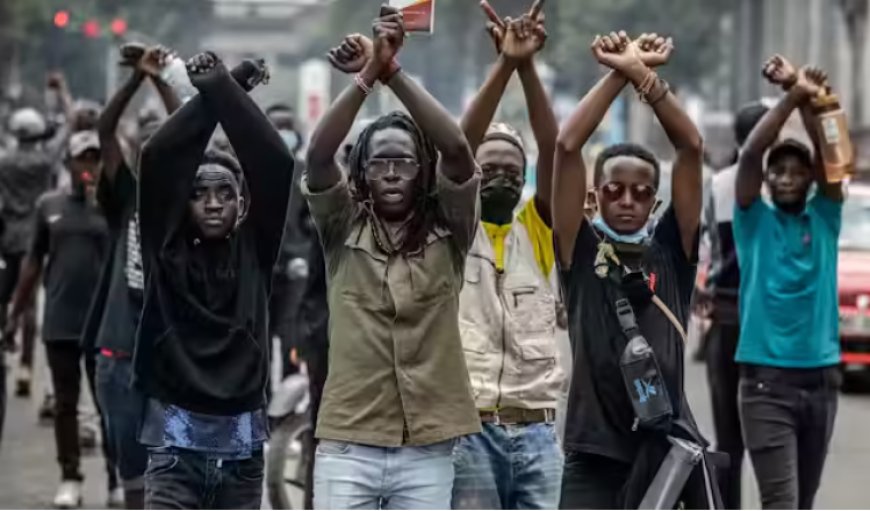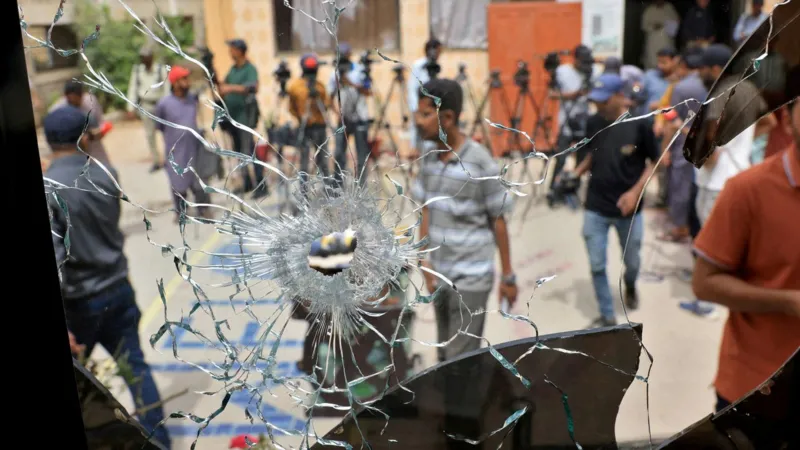Kenya’s Gen Z-Led Anti-Tax Protests Demonstrate Social Media’s Political Influence & Power
Kenya’s Gen Z-Led Anti-Tax Protests Demonstrate Social Media’s Political Influence & Power

Youth-led social media-inspired anti-tax protests in Kenya’s national capital, Nairobi, in June 2024, quickly spread throughout the country thanks to social media and the blogosphere. The initially peaceful demonstrations started in Nairobi but quickly spread to other cities, courtesy social media.
It all began when young Kenyans (Gen Z) started condemning via social media, TikTok, especially, a proposed finance bill that was meant to introduce significant tax hikes.
The bill aimed to generate an extra $2.7 billion in taxes to reduce the Kenyan government’s budget deficit and state borrowing.
Following several social media posts, the anger of the youth quickly swelled into a rallying call for defiance. No sooner had the call been spread across the blogosphere than the youth poured onto the streets of Nairobi to vent their anger at the Ruto government.
Not even the government’s partial withdrawal of some of the contentious tax provisions, such as the initially proposed 16% sales tax on bread, 25% duty on cooking oil, and a planned increase in the tax on financial transactions as well as a new annual tax on vehicle ownership amounting to 2.5% of the value of the vehicle, could assuage their anger. Rather, the young protesters persisted with their multiple-day protests demanding a withdrawal of the bill.
Following the lead of the youth (Gen Z), other stakeholders – lawyers and doctors – joined the protest train. The protests became more widespread and violent. There were arson attacks on Kenya’s parliament on Tuesday, 25 June 2024, after the House passed the bill. The ceremonial mace was also stolen amid the turmoil. Apart from the National Assembly arson, the protesters also targeted key government buildings such as the governor’s office and city hall and set them ablaze.
The police fired tear gas canisters as well as live rounds into the phalanx of protesters, according to Kenya’s local media. The BBC and CNN also reported seeing at least 5 dead bodies of protesters on the streets following Tuesday’s clash with the police. Aljazeera, however, quoted the president of the Kenya Medical Association as saying 13 protesters were killed. The reports also said several hundreds of protesters were injured in the melee.
Among the protesters was Auma Obama, the half-sister of former US President Barack Obama, who was teargassed by the police during a live interview with CNN.
The protesters insist that the unpopular bill would impose unaffordable tax rises on ordinary citizens and businesses already weighed down by the high cost of living.
In an address to the nation, President William Ruto blamed “organised criminals” for the disturbances that culminated in a total shutdown on Tuesday.
Five Ghanaian MPs, who were on a parliamentary visit to Kenya, got caught up in the violent arson attack on the legislature.
How Kenya’s Gen Z Digital Activism Snowballed Into Widespread Street Protests Akin To A Revolutionary March
Disgruntled social media-savvy young Kenyans used what was readily available to them, digitally, to create a groundswell of anger on TikTok which subsequently overflowed onto other social media platforms such as Facebook, Instagram, and X (formerly Twitter). They created video content explaining the government’s tax proposals and how those levies would adversely impact their ordinary lives in an already biting and difficult economic environment due to the rising cost of living.
These videos were viewed, liked, retweeted, and forwarded thousands of times across the blogosphere. Some videos even got more than a million views since their emotional content, from very personal and experiential perspectives, struck a chord with the economic difficulties many Kenyans faced.
As these videos streamed across social media, anger started building up with hashtags like “#OccupyParliament” and “#RejectFinanceBill2024”. The digital activism got so attractive that even Anita Barasa, the 17-year-old daughter of former Kenyan Prime Minister Raila Odinga, jumped on board. Her involvement as well as that of other prominent Gen Z figures on social media with a huge following, gave some impetus to the outrage, which, likely inspired the activists to move beyond the blogosphere onto the streets by urging like-minded people who were as outraged as they were, to wear black and carry placards.
While the protests were ongoing, courageous Gen Z bloggers and content creators who defied tear gas and police restraint, streamed videos and pictures live on social media. That, in itself, added more oomph and publicity to the activism. Other young Kenyans who saw their brave peers marching on the streets for a good cause, also felt the need, with almost patriotic fervour, to join the ‘revolution’. After all, it was a cause for their good and not evil.
Full of youthful exuberance, the youth took the march as not only a way of expressing their bottled-up frustrations but also an adrenaline-spiking moment. And certainly, not all who partook of it may have been motivated by a patriotic need to do so. Some of them may have just been present for the fun of it. To others, it may have been a good opportunity to connect and meet up with other young Kenyans. Some of them may also harbour future political ambitions and, thus, saw the outpouring on the streets by their peers as a defining opportunity to launch their political journey. Yet still, others may have been there to scout for potential lovers while others may have been purely motivated by monetary considerations since, as social media content creators, being present to capture and stream such a riveting, historic, and topical event would attract thousands if not millions of followers, eyeballs and clicks onto their various social media pages, channels, and handles. On social media, the more followers, viewership, and likes a page or account has, the more money it makes.
So, at the end of the day, the spontaneous outpouring onto the streets served different purposes for different young people, according to their various interests. But irrespective of one’s ulterior motive for being on the streets, the protests were a landmark in Kenya’s history. It showed the power of both the youth and social media in the political discourse and how they could combine forces to force change, as their protests compelled President Ruto on Wednesday, 26 June 2024, to withdraw and reject the bill.
In a televised national address, Mr Ruto said: “Listening keenly to the people of Kenya who have said loudly that they want nothing to do with this finance bill 2024, I concede. And, therefore, I will not sign the 2024 finance bill, and it shall subsequently be withdrawn.”
Ruto added: “Following the passage of the bill, the country witnessed widespread expression of dissatisfaction with the bill as passed, regrettably resulting in the loss of life, destruction of property, and desecration of constitutional institutions. I send condolences to the families of those who lost their loved ones in this unfortunate manner. Consequently, having reflected on the continuing conversation around the content of the finance bill of 2024, I will decline to assent to the bill.” So, at the end of the day, Gen Z won. They used social media to make their voices heard. They forced the government to listen to them. Their sacrifices, including death and injuries, didn’t go to waste. They could have chosen to spend their data to produce videos of naked girls twerking, or on other mundane issues to boost their following and viewership. Instead, they chose to tell truth to authority. They chose to use their platforms to rally their fellows for a national cause. They looked death in the face and dared it. A few paid the ultimate price so the others could live a less burdensome life. With that unparalleled bravery, they made history – even as young people. And the blood shed on the streets of Nairobi would be the indelible ink used to tell their heroic odyssey. And all this started with just a click on social media.
























































